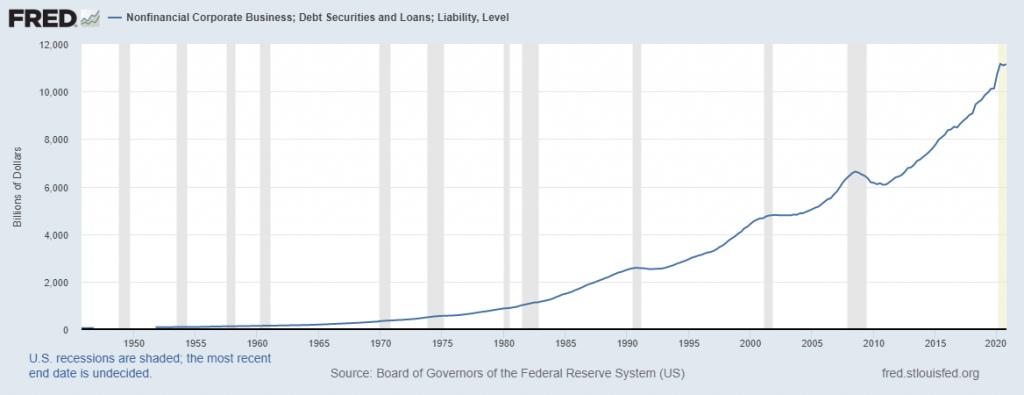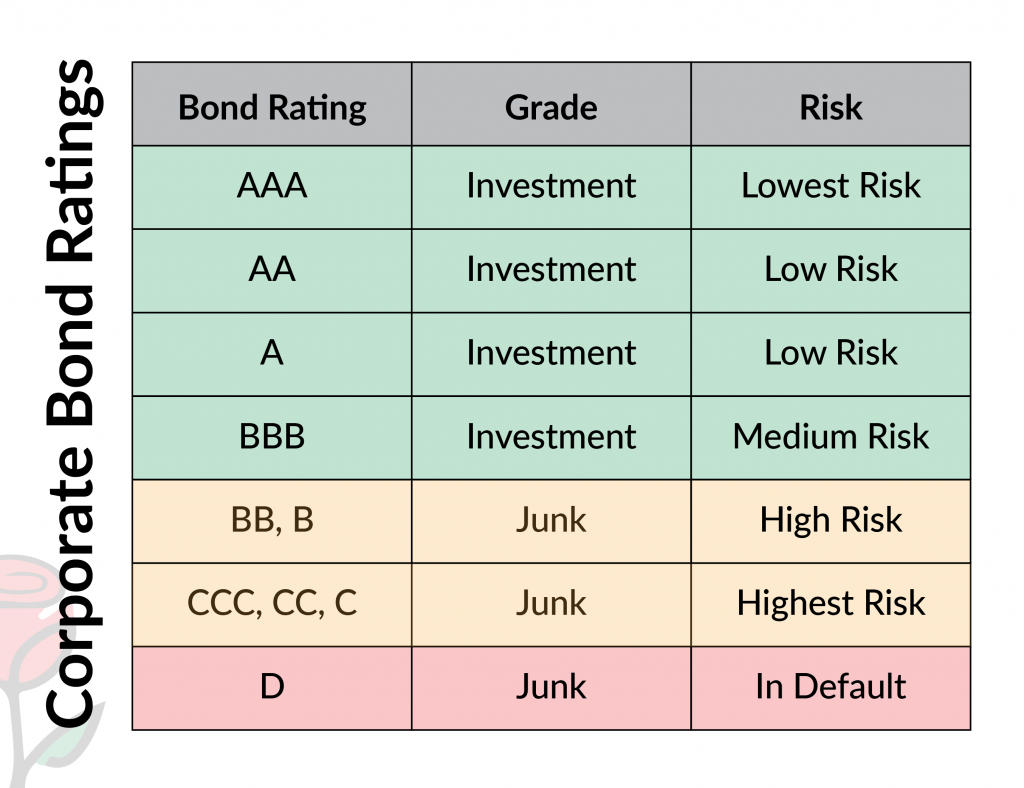I pay pretty close attention to the markets and one of the things that has perplexed me over the past few weeks is the constant drumbeat about inflation and interest rates. Again this weekend Larry Summers took to Bloomberg TV to criticize the COVID rescue plan (for those not keeping track, Summers has emerged as a leading liberal critic of the COVID rescue plan since Biden proposed it).
At first, I figured this was all just greed and corporations not wanting the low-interest gravy train to end. Corporations have enjoyed near zero percent interest rates since the economic crisis of 2008. I figured this debate would be put to bed when Fed chair Jerome Powell reiterated the Fed would keep interest rates near zero through 2023.
I was wrong. Right after Powell made those statements the goalposts got moved and now the potential of the economy overheating due to $1,400 direct relief payments and pent-up consumer demand was what would cause interest rates to rise. So WTF is up with all this concern over interest rates 🤔
Meet Corporate Debt, the New Ticking Timebomb
Capitalism loves its excesses and the cheap debt that started in 2008 let capitalism finance its every whim with barely a second thought given. In normal times, when a company needs to make a capital investment, it carefully considers the risks, returns, and rewards of said investment. When debt is virtually free, why do any analysis? Just do it (right Nike?).
Cheap Debt is the Preferred Method of Raising Capital
When companies need money they have basically three choices: use money from existing revenue streams (what most sole proprietors like me do), issue stock, or issue bonds (debt).
Issuing stock can dilute the price of the stock making existing investors unhappy and gives away equity in the company. I don’t think any major companies know how to finance capital improvements or expansions using existing revenue streams, so let’s just set that aside. Now, the only option we’re left with is taking on debt. And boy did companies take on debt.
Today, corporate debt is around $10 trillion dollars. That’s a 50% increase since 2008.

If you want to measure corporate debt as a percent of the country’s Gross Domestic Product – the total market value of all finished goods and services produced within a country’s borders – corporate debt is equal to 47% of our GDP. 🤯
Zombie Corporations are Coming
Before we can dive into zombie corporations, we need to have a basic understanding of how a company goes from healthy one day to a zombie the next.
Just like you have a credit score, corporations receive a bond rating score when they issue debt. When a rating agency believes the company will be able to pay back its debt, plus the interest on the bond – called a coupon – it is considered “investment grade” debt. This is the type of bonds most investment managers will invest in for fixed income investing. To keep it confusing, any rating above BBB is considered investment grade. Anything below BBB is considered “junk bond” status and most investment managers are not allowed to have junk bonds in their portfolios due to the risk associated with a default.

So here’s where things get messy, and zombie companies are born. When interest rates go up, the face value of existing bonds goes down (more on that in this YouTube video). This puts stress on the company’s books and can lead to cash flow issues. Should a rating agency decide to downgrade a company below BBB status, investment managers have to offload those bonds. The company’s ability to finance its operations becomes further strained, necessitating the need for more capital, that it can’t access because of the junk bond rating, and eventually the whole thing goes belly up.
Essentially, zombie companies are those that should have already died, but thanks to ultra-low interest rates, they’re able to hang on at that BBB rating.
The Number of Companies on the Brink is Unprecedented
Based on the most recent data, BBB-rated corporate debt stands at $3 trillion. A surprising number of the companies that are household names are hanging on by a thread, such as Macy’s, Ford, AT&T, Boeing, and many others – especially in the finance and fintech spaces.
The automotive industry, the financial services industry, the aerospace and airline industry, and others all have powerful lobbies in Washington DC and have successfully secured bailouts for themselves, their shareholders, and their executives in the past. At the same time, their workers were left homeless and unable to afford food.
Bonds for Buybacks
I’d be remiss if I didn’t address bond-financed stock buybacks as those have been a major driver of corporate debt.
CEOs and investors like stock buybacks.
I think it’s pretty obvious why investors like rising stock prices. When it comes to CEOs, most of the time their compensation is tied to the company’s stock price, so as stock prices go up, their personal wealth increases.
Buying back stock is one surefire way to increase a company’s stock price. A chart from Visual Capitalist shows how much better companies that repurchased stock did when compared to the S&P 500 in terms of generating value for shareholders. I recently wrote about how Boeing’s $40 million stock buyback may (and should) spell its demise.
Rising Interest Rates – A Self-Fulfilling Prophecy
So here we are on the bring of catastrophe yet again. Companies have gorged themselves on cheap debt while enriching their shareholders and their executives – and now all it takes to bring this house of cards crashing to the ground is a small rise in interest rates.
When I asked a friend in the finance industry if he thought interest rates would go up in spite of the Fed’s actions, he told me they’ll likely shoot up here soon. Why? It’s a self-fulfilling prophecy, he said. Wall Street starts to worry about interest rates going up, and soon enough interest rates are on the rise. You can already see this playing out with mortgage rates. As of today, mortgage rates have hit a nine-month high, even though the Fed promised to keep interest rates low.
It’s not long until the handwringing about corporate bond interest rates becomes a self-fulfilling prophecy. When that happens all of those companies sitting on the brink of junk bond status will be pushed over the edge and will be unable to fund operations and service their debt.
The Pain Before the Fall
In an effort to save themselves, the companies on the brink of junk bond status will reduce employee hours, sell off assets, and layoff employees. Given the number of companies on the bring of junk bond status, this could cause a serious slowing of the economy and lead to a whole host of other economic issues. But the bottom line is this – before companies implode million of Americans will struggle to pay their rent or mortgage, find food, and pay for other basic necessities. As those Americans struggle to survive, the economy will slow further potentially pulling more Americans into economic distress with it.
Different Lessons from 2008
The lesson the capitalists learned in 2008 was very different from the lessons the rest of us walked away with. The capitalists learned that if you’re “too big to fail” you get a nice government bailout no questions asked. Corporate debt is equal to almost half of our county’s GDP – with numbers like that, the capitalists are assuming as soon as interest rates cause the debt bubble to burst, they’ll get a free pass from Uncle Sam.
Companies Should Die, Workers Must Be Protected
What’s the fastest way out of this mess? If you’re a capitalist, it’s easy – create the conditions for interest rates to rise, watch the economy implode, get a taxpayer-funded government bailout, and finish the whole thing off by profiting off of the economic suffering of the workers (remember when the government made it possible to institutional investors to buy all the homes the banks just foreclosed).
Think I’m being hyperbolic? We where here just over a decade ago. The capitalists and their allies in government have a playbook for this exact situation.
In October of 2008, Congress authorized the $700 billion for the purchase of “troubled” financial instruments, shares, and bonds to inject “liquidity” into the market. TARP, along with the Emergency Economic Stabilization Act of 2008 created the financial conditions that have brought us to the crisis we’re in today.
This time it needs to be different. Instead of toothless regulations designed encourage good behavior from the financial elites, companies that are too big to fail need to be broken up. Those companies that receive government bailouts must fundamentally change their governance structure. Workers must have the majority of seats on the company’s board. Those boards and the company’s senior management must be diverse.
Mutual Aid is Our Best On-the-Ground Option
While the policy side of things gets sorted out, on the ground, there will be a lot of pain and suffering. To mitigate the needless pain and suffering of millions, we must quickly build up the infrastructure to provide mutual aid. If you’re unfamiliar with the concept of mutual aid, Second Thought has a great explainer video that you can watch on YouTube. After you’ve watched that video, I highly recommend RE-EDUCATION’s 5 steps To Start Mutual Aid! | Building An Alternative To Capitalism video.
What You Can Do
Our financial system is unnecessarily complex. This complexity benefits the elites. They know most people won’t try to understand what’s actually going on – this allows them to scapegoat on whatever is politically convenient and doesn’t threaten their control over the system. When you’re informed, you can inform those around you. You can help them understand our current system isn’t the norm, and that there are alternatives to this extreme boom and bust cycle (well boom and boom cycle for the elites).
For those who like to organize, seriously consider what you can do to help build mutual aid infrastructure in your neighborhood or community.
It’s going to take all of us working together to get through the upcoming recession. I am optimistic though that if we all work together we can end capitalism during this downturn once and for all.
That ended up being a much longer post than I anticipated. If you like it, let me know by sending me a tweet @JoshuaHayse, and please share it with your friends and family.

